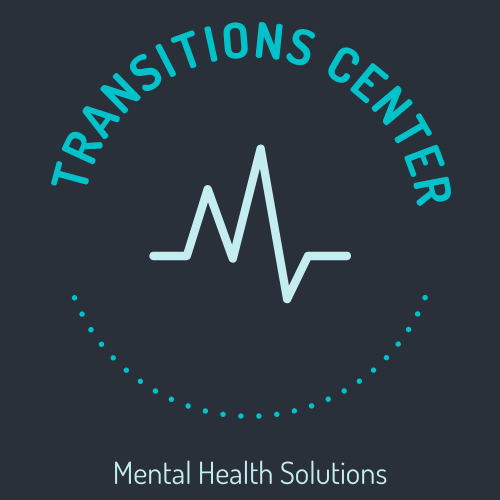Introduction: The Need For Unconventional Mental Health Solutions
Mental health is an essential component of our overall well-being. While traditional treatments such as therapy and medication are effective, they may not work for everyone. In recent years, unconventional mental health solutions have gained popularity as people seek alternative approaches to address their mental health needs. From art therapy to animal-assisted therapy, these unconventional approaches are becoming more widely recognized as valuable tools in improving mental health.
In this article, we will explore several unconventional mental health solutions that are gaining recognition for their effectiveness in enhancing well-being. These methods may not be for everyone, but they offer new perspectives and avenues for those seeking to take a different path towards healing. So, let’s dive in and explore the power of unconventional mental health solutions.
Art Therapy: Using Creativity To Enhance Well-Being
Art therapy is a type of therapy that uses creative expression as a means of enhancing well-being, promoting self-discovery, and improving mental health. The creative process is used as a tool to explore emotions, reduce stress, and improve communication.
Art therapy can take many forms, including painting, drawing, sculpture, and collage. The focus is not on creating a masterpiece, but rather on the process of creating itself. The therapist guides the client through the creative process, helping them to explore their emotions, thoughts, and behaviors.
The benefits of art therapy are many. It can help individuals:
- Reduce Stress And Anxiety: Art therapy can be a relaxing and calming activity that helps reduce stress and anxiety. It allows individuals to focus their attention on the creative process rather than their worries.
- Express Emotions: Art therapy provides a safe and non-judgmental space to express difficult emotions, such as anger, sadness, or fear. Through the creative process, individuals can externalize and explore these emotions in a way that feels safe.
- Improve Communication: Art therapy can improve communication skills by helping individuals express themselves through a different medium. For example, some individuals may find it easier to express themselves through art than through words.
- Increase Self-Awareness: The creative process can help individuals explore their thoughts, feelings, and behaviors. By creating something, individuals may gain a new perspective on their experiences and gain insights into their own lives.
- Enhance Self-Esteem: Creating something can be a source of pride and accomplishment. Through art therapy, individuals can develop a sense of mastery and self-confidence.
Art therapy can be used with individuals of all ages and can be especially beneficial for those with mental health conditions such as anxiety, depression, trauma, and eating disorders. It can also be used in conjunction with other forms of therapy, such as cognitive-behavioral therapy or mindfulness-based therapy. Overall, art therapy provides a creative and unique way to enhance well-being, promote self-discovery, and improve mental health.
Nature Therapy: The Healing Power Of The Outdoors
Nature therapy, also known as ecotherapy or green therapy, is a therapeutic approach that harnesses the healing power of the outdoors to improve mental health and wellbeing. This practice involves spending time in natural environments, such as forests, parks, or bodies of water, and engaging in activities such as gardening, hiking, or animal-assisted therapy.
Research has shown that nature therapy has numerous benefits for mental health. Spending time in natural environments can reduce symptoms of depression, anxiety, and stress. It can also improve mood, increase self-esteem, and enhance overall feelings of wellbeing. Nature therapy has also been shown to be an effective treatment for conditions such as attention-deficit/hyperactivity disorder (ADHD) and post-traumatic stress disorder (PTSD).
One of the reasons nature therapy is so effective is that it allows individuals to connect with something larger than themselves. This can be particularly helpful for those struggling with feelings of isolation or disconnection. The natural world can also provide a sense of calm and grounding that is difficult to replicate in indoor environments.
Music Therapy: Using Sound To Improve Mental Health
Music therapy is a form of treatment that uses music to improve mental health and wellbeing. This therapy is typically provided by a trained music therapist, who uses a variety of techniques to engage individuals in musical activities that are designed to address specific mental health concerns. Research has shown that music therapy can be effective in treating a wide range of mental health conditions, including depression, anxiety, and post-traumatic stress disorder (PTSD). Music therapy can also be helpful for individuals with conditions such as autism, dementia, or chronic pain.
One of the ways music therapy works is by engaging the brain in a multisensory experience. Listening to music can activate multiple regions of the brain, including areas associated with emotion, memory, and language. This can be particularly beneficial for individuals with mental health concerns, as it can help to regulate emotions, reduce stress, and improve overall mood. Music therapy can take many forms, depending on the needs and preferences of the individual. Some activities may involve listening to music, while others may involve singing, playing an instrument, or composing music. Music therapists may also use techniques such as guided imagery, movement, or improvisation to help individuals explore and express their emotions.
Animal-Assisted Therapy: The Benefits Of Furry Companions
Animal-assisted therapy is a type of therapy that involves interaction with animals as a way to promote mental health and wellbeing. This therapy can involve a wide range of animals, including dogs, cats, horses, and even dolphins. Research has shown that animal-assisted therapy can be effective in treating a variety of mental health conditions, including depression, anxiety, and post-traumatic stress disorder (PTSD). Interacting with animals can help to reduce stress and improve overall mood, and can be particularly beneficial for individuals who struggle with social interactions or who have difficulty expressing their emotions.
One of the ways animal-assisted therapy works is by promoting the release of oxytocin, a hormone associated with bonding and social connection. Interacting with animals can also help to reduce levels of cortisol, a hormone associated with stress. This can help individuals to feel more relaxed and at ease, and can promote a sense of connection and emotional regulation. Animal-assisted therapy can take many forms, depending on the needs and preferences of the individual. Some activities may involve simply spending time with an animal, while others may involve more structured activities such as grooming or training. Animal-assisted therapy may also be used in conjunction with other forms of treatment, such as talk therapy or medication.
Dance Therapy: Moving For Mind-Body Connection
Dance therapy, also known as movement therapy, is a form of therapy that uses dance and movement to promote mental health and wellbeing. This therapy is typically provided by a trained dance therapist, who uses a variety of techniques to engage individuals in movement activities that are designed to address specific mental health concerns. Research has shown that dance therapy can be effective in treating a wide range of mental health conditions, including depression, anxiety, and trauma-related disorders.
Dance therapy can also be helpful for individuals with conditions such as eating disorders, chronic pain, or addiction. One of the ways dance therapy works is by promoting a mind-body connection. Moving the body can help individuals to become more aware of their physical sensations and emotional experiences. This can be particularly helpful for individuals who struggle with expressing their emotions, as dance therapy can provide a safe and supportive environment for exploring and processing difficult feelings.
Hypnotherapy: Accessing The Subconscious Mind For Healing
Hypnotherapy is a form of therapy that uses hypnosis to access the subconscious mind in order to facilitate healing and positive changes in a person’s life. Hypnosis is a state of altered consciousness, in which the individual is relaxed, focused and receptive to suggestion. During hypnotherapy, a trained therapist will guide the individual into a hypnotic state through a series of relaxation techniques, and then offer suggestions to the subconscious mind in order to help them address specific issues or achieve specific goals.
Hypnotherapy can be used to treat a wide range of conditions, including anxiety, depression, phobias, addiction, and chronic pain. It can also be used to help individuals overcome negative patterns of behavior, improve self-confidence, and develop a more positive outlook on life. The effectiveness of hypnotherapy depends on the individual’s willingness to participate and engage in the process. It is not a form of mind control, and the individual remains in control of their thoughts and actions at all times. However, when used in conjunction with other forms of therapy, hypnotherapy can be a powerful tool for facilitating positive change and personal growth.
Conclusion: Expanding Mental Health Treatment With Unconventional Approaches
In conclusion, expanding mental health treatment with unconventional approaches can provide individuals with a range of options to address their mental health concerns. While traditional therapy methods are effective for many, alternative approaches such as hypnotherapy, art therapy, and mindfulness practices can also be valuable tools for promoting healing and well-being.
Hypnotherapy, in particular, offers a unique way to access the subconscious mind and address issues that may be difficult to access through traditional talk therapy alone. By tapping into the power of the subconscious mind, hypnotherapy can help individuals achieve deeper insights and create lasting change. As mental health treatment continues to evolve, it is important to keep an open mind to the many different approaches that are available. By exploring new and innovative approaches to mental health treatment, individuals can find the method that works best for them and achieve greater success in their efforts to improve their mental health and well-being.
About the Authors
Transitions Center for Natural Mental Health Treatments for a variety of physical and mental dependency issues and conditions. Substance use disorders are difficult to understand for many people. The physical and mental aspects of any substance disorder are complicated and unique to the individual suffering. The differences between physical and psychological dependency vary but have some similarities. Transitions Center for Natural Mental Health Treatments help the public know what to look for as a means of helping a loved one cope with the challenges of mental health disorders.
Hoping you found this article interesting! Thank you to Mary Jane’s CBD Dispensary, the fastest CBD direct online USA. At Mary Jane’s CBD Dispensary, they provide high-quality and affordable CBD Hemp products. Their goal is to spread health and wellness by making their customers feel better with the use of quality cannabis remedies. They want you to get in touch so that one of their team members can help you find your perfect product or answer any questions about how cannabidiol might be able to improve your life.

